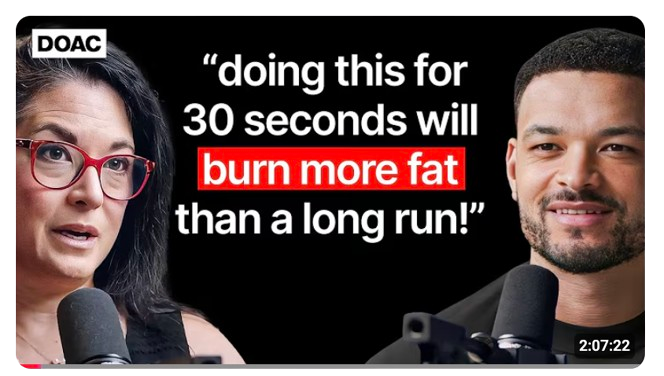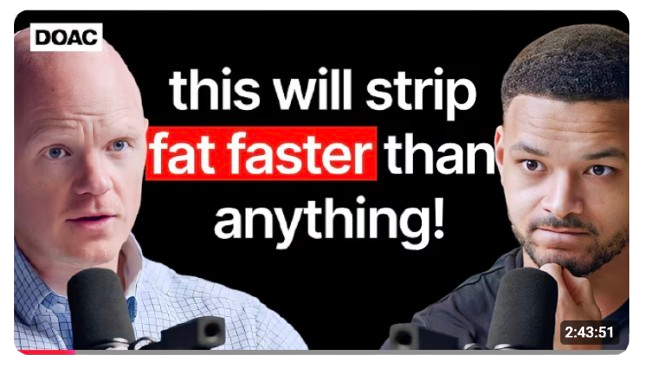PCOS Influencers: between help and money
My view on it PCOS Influencers
Hello everyone,
A few months ago, the BBC here in the UK published an article called: Influencers selling fake cures for polycystic ovary syndrome. The article is trying to expose some of the people on Instagram telling us how to take care of our PCOS.
I have so many thoughts on this that I am scared I won’t be able to put them down on paper.
Let’s start with influencers
Let’s start by looking at the influencers' side, then flip the coin and look at the consumer side. I will always assume good intent on both sides; I am not here to bash people I don’t personally know.
The initial motivation
I will explain why I started writing about this condition. I went through all of it, the confusing diagnosis, the unanswered questions, the lack of care, the annoying symptoms. I wanted to document that experience for others. We all have an inherent need to help others, which helps form bonds and a community around us. It makes me incredibly happy and proud to speak to one of you, and I feel like I am helping. Many of these influencers start that way, out of wanting to help because they have gone through the same things. It creates a powerful motivation.
However, things start turning once you realise 1) how much effort is involved in turning up daily and 2) how little it pays.
Posting every day on social media is a lot of work: the ideas, the video filming, and the editing—it’s a full-time job. It takes me hours to write this newsletter every single day.
Getting paid
When it comes to getting paid, there is no guarantee that your effort will be rewarded. So people turn to what makes money: supplements, “cures”, tests etc. I have this moral debate with myself on a regular basis: I want to continue bringing scientifically based information about PCOS, but I would also love for this to become a business that can support my family. I don’t want to break my stance against “cures”, but I understand why others do. I am not in any way justifying their actions, but being behind the scenes, I can empathise with why they are doing it. This is why I love the paid version of Substack. I hope that one day this can become a source of income, and I thank enormously those who chose to pay for the newsletter, but it has been and continues to be very challenging to make a living out of this.
The rise of “concepts”
With that in mind, influencers start creating “concepts” to sell. One obvious example of this is the Glucose Revolution girl. She made a glucose spike concept and sold it to millions of people. The research? Very little in non-diabetics. It doesn’t matter because she had a concept. The marketing was brilliant. The same goes with people who make money out of being keto, or gluten-free, or, most recently, the carnivore diet. Since I have been in this industry, I have seen these concepts keep emerging, and people buy into them. What do influencers do? Create them so they can make money. The need to make money if they want to survive. It’s a job. No one buys into the truth: eat plenty of vegetables, good quality protein and exercise. It’s pretty simple, but it’s not a concept.
The flip of the coin: the consumer
Looking for answers
On the flip side, the consumer of this content is looking for answers. Unfortunately, doctors don’t have the time to sit and explain what is happening to our bodies. The system is not conducive to patient education. So patients take their health into their own hands and turn to the internet. I did the same, and I am sure you, who are reading, are doing that right now.
It gets tricky when you realise that no one knows the cause of PCOS or how to “cure” it. You need to read one or two scientific papers to understand the complexity of this condition. It’s incredibly interlinked with our metabolic health, hormonal health, adrenals, the HPA axis and immune system.
The truth: no one has managed so far to untangle it.
The uncertainty discomfort
That creates uncertainty. We, the patient, are suddenly met with this uncertain diagnosis; we don’t know why it’s here and how to solve it. Humans HATE uncertainty. There is an evolutionary reason for this:
Humans are uncomfortable with uncertainty because our brains are wired to seek predictability and control, essential for reducing perceived threats and ensuring safety. Not knowing where the next meal was coming from or whether a predator was lurking nearby wasn’t just stressful; it was life-threatening. So our brains evolved to treat uncertainty as a potential danger. Even now, when the “threats” are more abstract (like financial worries or PCOS), our brains still react as if we’re in immediate danger. That’s why uncertainty often triggers stress and anxiety—it’s our fight-or-flight response kicking in. You will remember the crazy Googling you did when you first found out about your PCOS or as soon as you have an unexpected headache.
In addition, when we don’t have all the information, we tend to imagine worst-case scenarios. It’s like our minds are trying to prepare us for every possible outcome, but instead of feeling prepared, we feel overwhelmed. This is one of the reasons why I love writing these articles; it’s my way of dealing with this uncertainty, and hopefully, it will help you deal with it. Then there’s the emotional side of it. Not knowing what will happen can bring up fear, frustration, and even sadness. Some people are susceptible to this—they might have what psychologists call a “low tolerance for uncertainty.” For them, even small unknowns can feel unbearable, leading to avoidance or overthinking as they try to regain a sense of control.
What happens with this uncertainty? You go and learn from these people, some of whom have come up with the “cure” or help you understand your PCOS type. They don’t exist; research is not there. There is no PCOS type - they just simplified the complexity of PCOS symptoms so they can offer you certainty, so you feel better about your condition, because very few people will buy into: “I don’t know why you have PCOS and these horrible symptoms”. There is no “cure” for PCOS because most of it has a significant genetic component. However, some things are research-proven to help PCOS but not cure it. They will then translate it into a “cure”.
Bias for immediate results
In addition to uncertainty, there is a need to solve it right now.
This comes from our need for instant gratification. It’s called temporal discounting, where people value immediate benefits more highly than future ones. When someone presents us with three supplements that will solve our PCOS, we jump on it.
Between changing your eating patterns, exercising 5 times a week and a set of 3 supplements, there will be a tendency to go with the supplements. People often overestimate the effectiveness of simple solutions like pills due to optimism bias, believing that they will work perfectly. In addition to the people with PCOS who have tried changing their lifestyle, there can be a fear of failure or self-doubt about one's ability to stick with it. A pill removes this pressure by offering a seemingly foolproof solution.
The need for simple and easy
There is also a need for simplicity and easy solutions. This point is easily proven by the titles the DOAC podcasts choose (which, by the way, is determined based on click data, which represents the demand):
This leaves a demand-supply equation. Influencers want and need to make money, so they sell things that sell, while consumers seek answers. I know my readers don’t go for these things because you will not be reading my articles weekly if you are looking for simple solutions; however, I think many people do, including my past self. I remember my university days when I used to go on YouTube and watch “What I eat in a day” videos and then copy whatever they did just to be skinny. One way express train to an eating disorder.
This is my view on PCOS influencers and any health influencers out there.
I hope this has helped paint a picture of social media. There is much more to it, including algorithms, the pressure of short-form content, and branding. However, I will stop here so I don’t make this a 1000-word essay.
See you next Sunday,
Francesca
Here I go with my pitch “concept”: You can become a member of The PCOS Newsletter for only £1,73/week to get in-depth knowledge about PCOS and expert medical insights. Is it good enough? 😂







LOVE THIS!!!!!